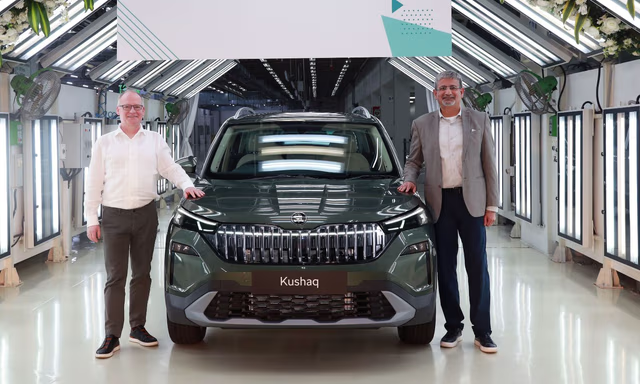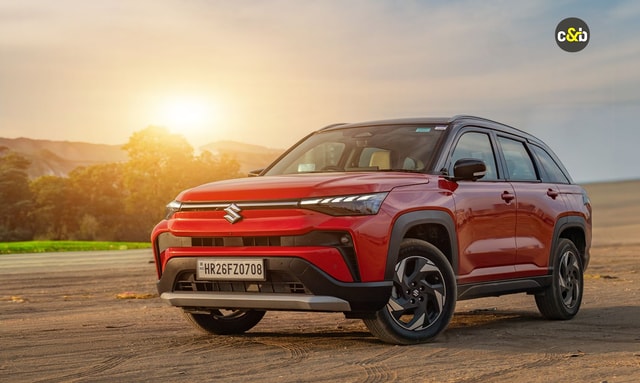Union Budget 2021-22: EV Makers Seek Lower GST, Import Duty Cut

- EV manufacturers seek extension of FAME-II scheme
- Lower GST, import duty reduction on wishlist of EV manufacturers
- Financing options from NBFCs, Banks on wishlist of EV makers
Finance Minister Nirmala Sitharaman will present the Union Budget on February 1, 2021. And even as the economy looks at a path of revival after the COVID-19 pandemic hit industry hard, the 2021 Union Budget will be important, not just for industry as a whole, but for every individual, as India looks to rebuild its economy after the global pandemic. Like every industry, the electric vehicle industry in India is hoping with anticipation that the Union Budget 2021 will include some sops for the EV makers, to give a spark of growth to the industry.
Also Read: Luxury Car Makers Seek Lower Taxes, Stable Policy In Union Budget 2021-22
"The year 2021 can prove to be a revolutionary year for the electric vehicle (EV) industry. We have high hopes from the union budget this year and are optimistic that the government will continue to take the right steps to place India on the global EV map. With that said, we urge the finance minister to reconsider the current taxation framework applicable on raw material and the final product in case of EVs. While the GST input on raw material is 18%, the tax on outward supplies currently stands at 5%, leading to an implicit inverted duty structure for us (manufacturers). This move could help in optimizing the cash flows," said Jeetendra Sharma, Founder and Managing Director, Okinawa Autotech.
Also Read: Upcoming Electric Car Launches In 2021-22

Manufacturers like Ampere Electric are expecting reduction of GST and import duty for lithium cells
Industry leaders from the EV segment, as well as analysts expect more reforms and incentives for indigenous manufacturing to help accelerate electric vehicle consumption across the country. So far, the growth of the EV industry has not been as expected, and the industry is hoping that the government will lower GST on electric vehicles, as well as lower import duties on lithium ion cells, which form the fundamental core of lithium ion batteries that power electric vehicles.
Also Read: Ampere Electric Achieves 75,000 Sales Milestone In India, Inaugurates 300th Showroom
"Last year, the impact of the pandemic was tough on an already low performing automotive sector. Despite all the challenges, EV adoption continued to increase and the government's constant support in helping EV companies reduce cost of ownership by offering subsidies and other incentives, is highly commendable. We hope that in this budget, the government considers reducing the GST rate on lithium ion batteries. This would go a long way in providing a relief to EV manufacturers in the country and effectively increase the adoption of value-for-money EVs like Gemopai," said Amit Raj Singh, Co-Founder and Managing Director, Gemopai.
Also Read: Okinawa To Increase Production To 5 Lakh Units By 2022

Electric two-wheeler manufacturer Okinawa is looking to ramp up manufacturing and hopes the budget will provide much-needed impetus and sops to the EV industry
Electric two-wheelers are going through a rapid transformation, as more and more consumers are coming forward to adopt electric two-wheelers. While running costs of electric two-wheelers are significantly lower than internal combustion engines, powered by petrol, EV makers feel the high cost of owning an electric vehicle is still a challenge for many prospective customers. A reduction in GST and import duty on lithium ion cells is what EV makers are seeking from the government to give a boost to the electric vehicle sector.
Also Read: Okinawa To Make Rs. 150 Crore Investment In New Manufacturing Facility
"Higher cost of owning an EV is still a major bottleneck in its adoption along with GST on raw material. Customs duty on EV-related product and technology is still a major challenge for the manufacturers. Measures that would augur well for the EV industry in the upcoming budget would be to tackle the high GST, cost of raw material and custom duty and to encourage the production of lithium powered batteries in India which constitutes almost 40 per cent cost of the vehicle. We also look forward to making retail finance available through nationalised and private banks by including the EV in priority sector lending," said Harsh Vardhan Didwania, Co-Founder and Director, Eeve India.
On the wishlist for EV manufacturers is also an extension of the Faster Adoption and Manufacturing of (Hybrid) and Electric Vehicles (FAME) II scheme for two more years upto 2025 in the Union Budget 2021-22. The FAME-II scheme came into effect from April 1, 2019 with a budget of Rs. 10,000 crore, and for a period of three years. Electric vehicle manufacturers also want the government to look into providing financing solutions for customers to buy EVs.
Latest News
 Jaiveer Mehra | Feb 23, 2026Skoda Kushaq Facelift Production Commences Ahead Of LaunchThe facelifted Kushaq made its global debut last month with deliveries set to commence from March 2026.1 min read
Jaiveer Mehra | Feb 23, 2026Skoda Kushaq Facelift Production Commences Ahead Of LaunchThe facelifted Kushaq made its global debut last month with deliveries set to commence from March 2026.1 min read Jaiveer Mehra | Feb 23, 20262026 Isuzu D-Max Hi-Lander Launched At Rs 21.05 Lakh; Gets Automatic Gearbox Option, More FeaturesThe Hi-Lander continues to only be offered in 4x2 spec, but now packs in similar features as the base-spec V-Cross.1 min read
Jaiveer Mehra | Feb 23, 20262026 Isuzu D-Max Hi-Lander Launched At Rs 21.05 Lakh; Gets Automatic Gearbox Option, More FeaturesThe Hi-Lander continues to only be offered in 4x2 spec, but now packs in similar features as the base-spec V-Cross.1 min read car&bike Team | Feb 23, 2026KTM Ends Long-Term Partnership With KISKA DesignWith Bajaj Auto now the owner of KTM, the Austrian brand is shifting to in-house design but will still work with KISKA on some projects.1 min read
car&bike Team | Feb 23, 2026KTM Ends Long-Term Partnership With KISKA DesignWith Bajaj Auto now the owner of KTM, the Austrian brand is shifting to in-house design but will still work with KISKA on some projects.1 min read Jaiveer Mehra | Feb 22, 20262026 Isuzu D-Max V-Cross Gets New Features, Cosmetic Updates; Prices Start From Rs 25.50 LakhUpdates include the addition of a new 10.3-inch touchscreen & 360 degree cameras, among others; no 4x2 option.1 min read
Jaiveer Mehra | Feb 22, 20262026 Isuzu D-Max V-Cross Gets New Features, Cosmetic Updates; Prices Start From Rs 25.50 LakhUpdates include the addition of a new 10.3-inch touchscreen & 360 degree cameras, among others; no 4x2 option.1 min read car&bike Team | Feb 21, 2026Norton Atlas Spotted Testing In India Once AgainThe spied model appears to be the base version of the mid-capacity adventure tourer.1 min read
car&bike Team | Feb 21, 2026Norton Atlas Spotted Testing In India Once AgainThe spied model appears to be the base version of the mid-capacity adventure tourer.1 min read car&bike Team | Feb 21, 20262026 Tata Punch EV Facelift: Variants, Features, Prices ExplainedThe Punch EV facelift is offered in six variants and with two battery pack options. Here is a rundown of what each variant has to offer.1 min read
car&bike Team | Feb 21, 20262026 Tata Punch EV Facelift: Variants, Features, Prices ExplainedThe Punch EV facelift is offered in six variants and with two battery pack options. Here is a rundown of what each variant has to offer.1 min read
 Girish Karkera | Feb 20, 2026Road Test: 2025 VinFast VF7 AWD Sky InfinityFlagship all-electric SUV from the Vietnamese car maker gets most of the basics right.1 min read
Girish Karkera | Feb 20, 2026Road Test: 2025 VinFast VF7 AWD Sky InfinityFlagship all-electric SUV from the Vietnamese car maker gets most of the basics right.1 min read Jaiveer Mehra | Feb 18, 2026New BMW X3 30 Vs Mercedes-Benz GLC 300: Midsize Luxury SUV FaceoffWith the new X3 30, BMW has a direct competitor to the petrol GLC 300, but which is the luxury SUV for you?1 min read
Jaiveer Mehra | Feb 18, 2026New BMW X3 30 Vs Mercedes-Benz GLC 300: Midsize Luxury SUV FaceoffWith the new X3 30, BMW has a direct competitor to the petrol GLC 300, but which is the luxury SUV for you?1 min read Jafar Rizvi | Feb 15, 2026Maruti Suzuki Victoris: Long-Term Review - Report 1The Victoris is Maruti’s latest offering for the Indian market, and after spending some time with it, here are a few early impressions.1 min read
Jafar Rizvi | Feb 15, 2026Maruti Suzuki Victoris: Long-Term Review - Report 1The Victoris is Maruti’s latest offering for the Indian market, and after spending some time with it, here are a few early impressions.1 min read Bilal Firfiray | Feb 12, 2026BMW X3 30 xDrive M Sport Review: The Driver’s SUV ReturnsRange-toppingX3 30 xDrive M Sport brings back the fun with 255bhp and genuine enthusiast appeal. Does this performance-focused SUV stand out?5 mins read
Bilal Firfiray | Feb 12, 2026BMW X3 30 xDrive M Sport Review: The Driver’s SUV ReturnsRange-toppingX3 30 xDrive M Sport brings back the fun with 255bhp and genuine enthusiast appeal. Does this performance-focused SUV stand out?5 mins read Bilal Firfiray | Feb 11, 2026Mercedes-AMG CLE 53 Coupe Review: The Goldilocks AMG?The Mercedes-AMG CLE 53 Coupe is a concoction of hooliganistic performance and everyday usability. Here’s why this Rs 1.5 crore two-door AMG might be the perfect modern sports coupe for India.6 mins read
Bilal Firfiray | Feb 11, 2026Mercedes-AMG CLE 53 Coupe Review: The Goldilocks AMG?The Mercedes-AMG CLE 53 Coupe is a concoction of hooliganistic performance and everyday usability. Here’s why this Rs 1.5 crore two-door AMG might be the perfect modern sports coupe for India.6 mins read




















































































































